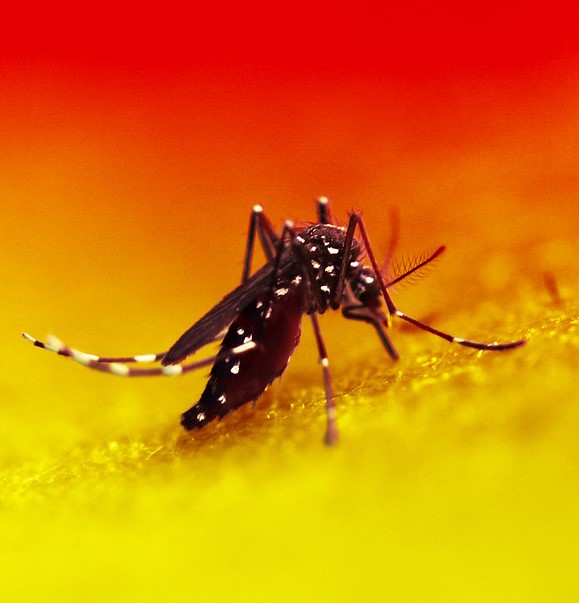- Pakistan has reported another wild poliovirus type 1 (WPV1) case, marking its second of the year, the Global Polio Eradication Initiative (GPEI) said in its latest weekly update. The patient is from Khyber Pakhtunkhwa in the northwestern part of the country, an area where polio vaccinators are facing armed attacks, including a policeman who was killed this week in the province's Bannu district while providing security to a vaccination team, according to a media report. Elsewhere, two African countries reported more circulating vaccine-derived poliovirus type 2 (cVDPV2) cases. Burkina Faso reported its second case of the year, and Chad reported 5 cases in four provinces, bringing its total for the year to 20.
- Though overall mpox cases declined last week, four countries reported an increase in cases, with Mexico reporting the biggest rise, the World Health Organization (WHO) said in its latest update. Over the past 4 weeks, countries in the Western Pacific region—especially China and South Korea—reported 65.0% of global cases, followed by the Americas region at 15.6%. Portugal also reported a rise in cases over the past 3 weeks.
- The WHO this week updated its resources for countries experiencing influenza outbreaks in animals or suspected zoonotic flu cases in humans. It brings together recommendations and guidance from the WHO, the World Organization for Animal Health (WOAH), and the UN Food and Agriculture Organization (FAO). The resource covers surveillance collaboration, community protection, countermeasure access, clinical care, and emergency coordination.
- The WHO today also issued new guidelines on infection prevention and control (IPC) for Ebola and Marburg disease, its first comprehensive evidence-based guidance on these measures for these related hemorrhagic fever virus illnesses. The guidelines cover IPC ring approach once a case is identified; screening, triage, and isolation; managing healthcare workers after exposure; personal protective equipment; hand hygiene and glove disinfection; cleaning and disinfection of the patient environment; waste management; and handling of deceased patients.
Quick takes: Polio in 3 nations, global mpox, animal flu resource, Ebola/Marburg guidance
No evidence athletes at risk for cardiac arrest after COVID vaccinations

A study yesterday in the British Journal of Sports Medicine from researchers at the Amsterdam University Medical Centers (UMC) reviews all current literature on athletes, sudden cardiac arrest, and myocarditis following COVID-19 vaccines, and finds that athletes engaged in intensive activity are not at increased risk for heart complications following vaccination.
On social media platforms, COVID-19 vaccines have been named the cause of cardiac arrest in young athletes, most recently Bronny James, LeBron James' college basketball-playing son who suffered a sudden heart attack while practicing for the University of Southern California last month.
In the new paper, the authors said there were no confirmed cases of athletes with cardiac complications following mRNA vaccination as of February 15, 2023. Recently, they write, an Australian study of more than 4 million young adults showed no increase in out-of-hospital cardiac arrest for those with recent COVID-19 infections or vaccination.
There are currently no available scientific reports that provide an evidence-based framework to prove causality between the reported events and mRNA COVID-19 vaccination.
"Although the absence of evidence does not necessarily reflect an absence of effect, there are currently no available scientific reports that provide an evidence-based framework to prove causality between the reported events and mRNA COVID-19 vaccination," the authors wrote.
Myocarditis and VO2 max implications
Myocarditis, an inflammation of the heart muscle, can rarely occur following COVID-19 infection, and even more rarely following COVID-19 vaccination.
"Although athletes—due to their relatively young age—are at increased risk of developing myocarditis, we found no evidence in the studies that COVID-19 vaccination combined with intense exercise increased this risk even further," said study author Joelle Daems, a PhD candidate in Sports Cardiology at Amsterdam UMC, in a UMC press release.
The authors note that one Dutch study did demonstrate a small but statistically significant decrease in VO2 max—a measure of aerobic fitness—7 days after vaccination. The effect was short-lived, but the authors said it may be reason to time vaccinations away from major sporting events.
WHO details unusual dengue surge in Bangladesh

Bangladesh is experiencing an unusual surge in dengue activity that started earlier than usual and is occurring with a relatively high case-fatality rate (CFR), the World Health Organization (WHO) said today in an outbreak notice.
The spike started in late June and has so far resulted in 69,483 lab-confirmed cases, 327 of them fatal, for a CFR of 0.47%. Nearly two thirds of the cases and deaths were reported in July. Activity is fueled by high rainfall amounts that, along with high temperatures and high humidity, have led to an increase in mosquito populations throughout Bangladesh.
Cases and deaths are tracking higher than in similar periods for the past 5 years and are at their highest levels since 2000. Outbreak activity hasn't likely peaked, the WHO said. The CFR is higher in females, especially younger adult women. The overall CFR is also higher in seniors than in younger adults.
Serotype 2 predominant
The predominant virus is dengue serotype 2, which hasn't been the country's dominant serotype since 2018, when it was replaced by serotype 3. The WHO said the shift in serotypes may be contributing to more severe infections and hospitalizations when patients are infected for a second time with a different serotype.
Bangladesh's climate conditions are becoming more favorable to transmission of dengue and other vector-borne diseases owing to excess rainfall, waterlogging, flooding, temperature rises, and unusual seasonal shifts, the WHO warned.
Yesterday WHO Director-General Tedros Adhanom Ghebreyesus, PhD, said on Twitter that the WHO is worried about a rise in dengue activity across Southeast Asia, especially in Bangladesh, in part because of the climate crisis. In a weekly epidemiologic report, the WHO's Southeast Asia regional office noted a sharp dengue rise in Nepal and a more modest rise in Thailand.










